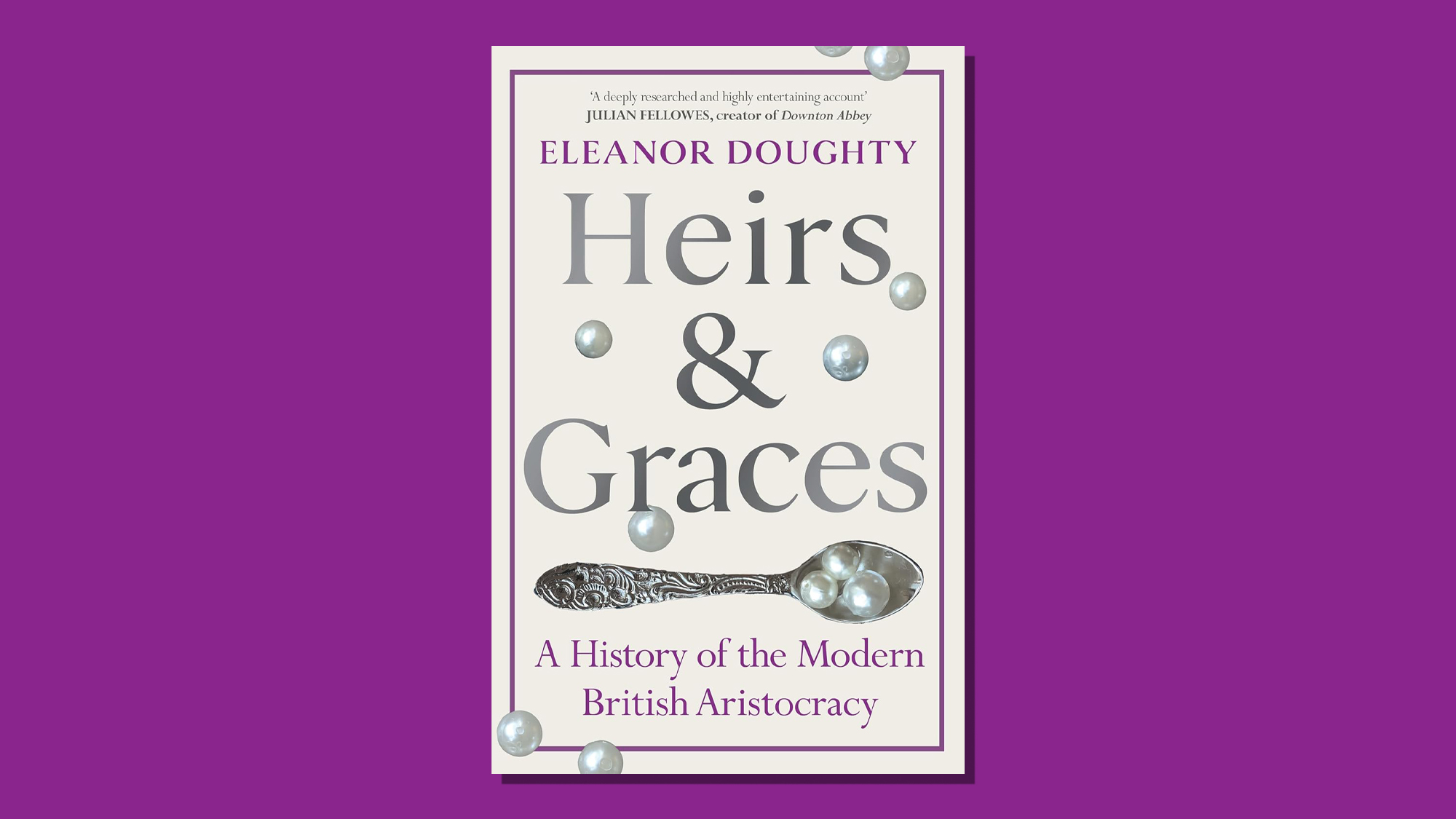Heirs and Graces: an ‘enthralling’ deep dive into the decline of nobility
Eleanor Doughty explores the ‘bizarre fascination’ with the British aristocracy

A free daily email with the biggest news stories of the day – and the best features from TheWeek.com
You are now subscribed
Your newsletter sign-up was successful
Although Britain’s aristocracy no longer enjoys the wealth and status it once possessed, it still inspires a “bizarre fascination”, said Henry Mance in the Financial Times. “Just look at the success of ‘Downton Abbey’, the continued interest in Lord Lucan’s 1974 disappearance, and the number of newspaper headlines about dukes and lords.” In “Heirs and Graces”, the journalist Eleanor Doughty “maps the 796 families in Britain with hereditary titles” in order to discover, as she puts it, “who they are and how they tick”. It’s a book that is “dense with personal stories” – you may “lose track of the baronets” – but Doughty, a generally “sympathetic chronicler”, does an excellent job of illuminating the nobility, exploring their habits and attitudes, their daily lives and larger concerns (chief among them the upkeep of their ancestral houses). The book is “often enthralling”.
With Labour planning to remove the remaining hereditary peers from the House of Lords, it’s a timely moment for this “superb survey” to appear, said Alwyn Turner in The Times. The broad story it tells is “inevitably of decline”. Gone are the days of “pampered idleness”, when tales of upper-class sexual impropriety added much to the “gaiety of the nation”. A few aristocrats remain exorbitantly rich – the Duke of Westminster is worth more than £10bn – but there are scores more with “perfectly normal” jobs, such as Archers actor Tim Bentinck, the 12th Earl of Portland, and the 5th Baron Monkswell, who worked as a “customer services adviser for B&Q”. All the same, many of Doughty’s subjects emerge as a “breed slightly apart”, their “bewildering” titles and honorary titles further confused by “nicknames of unknown origin (Bobo, Boofy, Crumb, Puffin)”.
In an “interesting chapter” on primogeniture, Doughty interviews daughters “who feel overlooked and undereducated compared with their brothers, and finds wives who were treated as breeding mares”, said Richard Davenport-Hines in Literary Review. Other chapters delve into squabbles over inheritance, or the “troubles of having an alcoholic or drug-ridden heir”. But while Doughty doesn’t romanticise the upper classes, nor is there any hint of mischief or malice in these pages – she has no desire to “shake foundations”. This is a “forgiving, good-spirited book, which celebrates the adaptability, the fortitude, the oddness, the forbearance, the anger and the spite of the coronet class”.
The Week
Escape your echo chamber. Get the facts behind the news, plus analysis from multiple perspectives.

Sign up for The Week's Free Newsletters
From our morning news briefing to a weekly Good News Newsletter, get the best of The Week delivered directly to your inbox.
From our morning news briefing to a weekly Good News Newsletter, get the best of The Week delivered directly to your inbox.
A free daily email with the biggest news stories of the day – and the best features from TheWeek.com
-
 The 8 best TV shows of the 1960s
The 8 best TV shows of the 1960sThe standout shows of this decade take viewers from outer space to the Wild West
-
 Microdramas are booming
Microdramas are boomingUnder the radar Scroll to watch a whole movie
-
 The Olympic timekeepers keeping the Games on track
The Olympic timekeepers keeping the Games on trackUnder the Radar Swiss watchmaking giant Omega has been at the finish line of every Olympic Games for nearly 100 years
-
 6 exquisite homes with vast acreage
6 exquisite homes with vast acreageFeature Featuring an off-the-grid contemporary home in New Mexico and lakefront farmhouse in Massachusetts
-
 Film reviews: ‘Wuthering Heights,’ ‘Good Luck, Have Fun, Don’t Die,’ and ‘Sirat’
Film reviews: ‘Wuthering Heights,’ ‘Good Luck, Have Fun, Don’t Die,’ and ‘Sirat’Feature An inconvenient love torments a would-be couple, a gonzo time traveler seeks to save humanity from AI, and a father’s desperate search goes deeply sideways
-
 A thrilling foodie city in northern Japan
A thrilling foodie city in northern JapanThe Week Recommends The food scene here is ‘unspoilt’ and ‘fun’
-
 Tourangelle-style pork with prunes recipe
Tourangelle-style pork with prunes recipeThe Week Recommends This traditional, rustic dish is a French classic
-
 Samurai: a ‘blockbuster’ display of Japan’s legendary warriors
Samurai: a ‘blockbuster’ display of Japan’s legendary warriorsThe Week Recommends British Museum show offers a ‘scintillating journey’ through ‘a world of gore, power and artistic beauty’
-
 BMW iX3: a ‘revolution’ for the German car brand
BMW iX3: a ‘revolution’ for the German car brandThe Week Recommends The electric SUV promises a ‘great balance between ride comfort and driving fun’
-
 Arcadia: Tom Stoppard’s ‘masterpiece’ makes a ‘triumphant’ return
Arcadia: Tom Stoppard’s ‘masterpiece’ makes a ‘triumphant’ returnThe Week Recommends Carrie Cracknell’s revival at the Old Vic ‘grips like a thriller’
-
 My Father’s Shadow: a ‘magically nimble’ love letter to Lagos
My Father’s Shadow: a ‘magically nimble’ love letter to LagosThe Week Recommends Akinola Davies Jr’s touching and ‘tender’ tale of two brothers in 1990s Nigeria